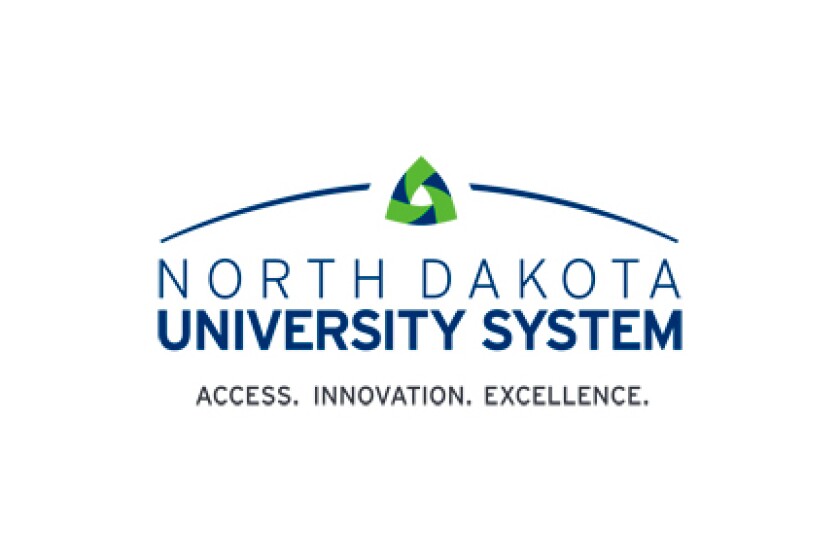GRAND FORKS — Presidents at North Dakota’s two largest universities are compensated at a lower rate compared to their peers, according to a report presented at the State Board of Higher Education’s Thursday meeting.
A report from executive search firm AGB Search showed presidents at the University of North Dakota and North Dakota State University make less than presidents at similarly classified universities across the United States.
The same was true for presidents at Dickinson State University, Mayville State University and Valley City University.
“If we expect the best, we need to compensate adequately,” said board member Casey Ryan.
The report identified peer institutions for 10 of the North Dakota University System’s 11 colleges and universities and grouped them with other state institutions based on size, geography, and research activity as classified by the Carnegie Classification of Institutions in Higher Education, among other factors.
ADVERTISEMENT
UND President Andrew Armacost, who took the job in 2020, received $375,347 in 2022, according to data compiled by public salary database Open Payrolls.
A president at a group of similar high research universities like the University of South Dakota or Boise State University received a median total compensation of $482,125, for comparison. (That figure includes non-salary compensation, like housing or vehicle costs.)
The Herald reached out to Armacost directly late Thursday afternoon for comment; he told the Herald he was in a meeting and unavailable to speak. University spokesperson David Dodds wrote in a text message that Armacost said it was “an honor to serve UND and the state of North Dakota.”
For very high research universities similar to NDSU, the median compensation is $500,000, according to the study. NDSU President David Cook, for comparison, was hired at a salary of $420,000 in 2022, according to the Forum of Fargo-Moorhead.
None of the presidents of DSU, MSU or VCSU had a salary greater than $225,000, while the median compensation for similar universities was $275,000.
Presidents at the remaining four colleges and universities were compensated at rates near the median or slightly above, Ryan noted.
Dakota College at Bottineau was excluded from the study because it technically does not have a president, only a dean.
Board member Kevin Black told members the comparison state schools were carefully chosen, with proximity to North Dakota a heavily weighted factor.
ADVERTISEMENT
“For anybody who hires folks, you have to pay attention to the geographic market,” Black said.
He also suggested the board look into performance-based bonus compensation as well as taking a closer look at benefits afforded to presidents, particularly regarding housing.
Ryan suggested the board should move immediately to increase the salaries of “underpaid” presidents through the end of the academic year instead of waiting until June for contract negotiations.
He said the increase in compensation would cost “less than but close to $200,000” among all of the affected universities, though he did not specify how that funding would be disbursed.
“We know some of our presidents are being recruited,” Ryan said. “I don’t know that they’re looking to leave, but I know that owing to their success, they’re being recruited. So my personal opinion is that we should make a decision today if we’re going to make a change.”
Board member Jeffrey Volk pushed back against this suggestion, arguing the board had engaged in “virtually no discussion” about the topic before Thursday.
“I’m not at all prepared to talk about adjustments,” he said. “In my opinion, to start to advance the use of this (report), we need to develop a compensation philosophy.”
Chancellor Mark Hagerott agreed with Volk, saying he’d be willing to negotiate with “vulnerable” presidents when contract negotiations come up.
ADVERTISEMENT
“I’m glad to communicate that we’ll commit in June to do this,” Hagerott said. “I’d hate to do this today.”
No vote was taken on Ryan’s suggestion, though board chair Tim Mihalick requested the Budget and Finance committee continue to look into the issue.













